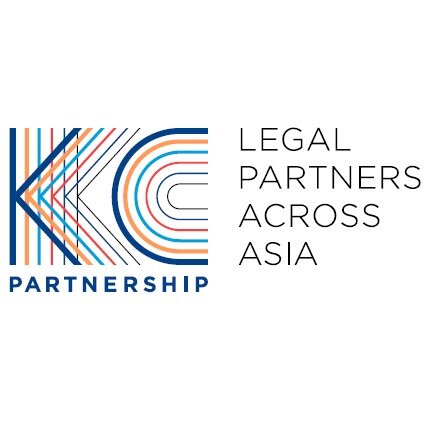Best Real Estate Lawyers in Harbourfront
Share your needs with us, get contacted by law firms.
Free. Takes 2 min.
Free Guide to Hiring a Real Estate Lawyer
List of the best lawyers in Harbourfront, Singapore
Singapore Real Estate Legal Questions answered by Lawyers
Browse our 1 legal question about Real Estate in Singapore and read the lawyer answers, or ask your own questions for free.
- Purchasing private property in JB. Seeking lawyer to represent my interest
- Lawyer to handle the transfer of title deeds
-
Lawyer answer by Eman Al Ali Advocates & Legal Consultant
Dear client, we at Eman Al Ali Advocates & Legal Consultants can fully represent you in the purchase process and handle the transfer of the title deed to protect your interests from start to finish.
Read full answer
About Real Estate Law in Harbourfront, Singapore
Real estate laws in Harbourfront, Singapore are complex and nuanced, with a clear legal structure present around various matters such as rights of property ownership, tax obligations, conveyancing, leasing, and property financing. Understanding these laws is essential for anyone planning to invest, buy, lease, or sell real estate in this lively neighborhood of Singapore.
Why You May Need a Lawyer
You may require a lawyer for an array of reasons related to real estate transactions. Some common instances include drafting and reviewing property contracts, navigating through zoning issues, managing tax-related concerns, and resolving tenancy disputes. A legal expert can also assist in ensuring compliance with local land laws, ensure proper title transfer, and provide advice on obtaining suitable financing for property acquisition.
Local Laws Overview
The key aspects of local laws which are particularly relevant to Real Estate in Harbourfront, Singapore include the Residential Property Act, which limits foreign ownership of certain types of properties. The Planning Act governs land use and development. Another key law is the Stamp Duties Act, which details the stamp duty charges payable on property transactions. Furthermore, Land Titles Act outlines the process and requirements for acquiring, transferring, and eliminating the right to a property.
Frequently Asked Questions
What are the restrictions on foreign property ownership in Harbourfront?
Under the Residential Property Act, foreigners are generally not allowed to purchase vacant land and landed properties. However, they can buy apartments and condominium units without any restrictions.
What kind of taxes are involved in the buying and selling of property?
Buying a property in Singapore involves payment of Buyer's Stamp Duty and possibly Additional Buyer's Stamp Duty. Selling a property within certain timeframes may incur Seller's Stamp Duty.
Can a foreigner take a loan for buying property in Singapore?
Yes, foreigners can take a loan for buying property but the Loan-To-Value limit could be lower than that for residents. Legal advice might be useful in these situations.
What is the process of property sale in Singapore?
Typically, the process starts with a property agent helping you to find a suitable property. Next, the Option to Purchase agreement is signed between buyer and seller, followed by the Sales and Purchase agreement. All documents must be stamped by IRAS and then the title deed is transferred.
What are the land zoning laws in Harbourfront?
The Urban Redevelopment Authority (URA) Master Plan stipulates land usage in Harbourfront, ranging from residential, commercial, or mixed-use. Zoning violations can lead to penalties.
Additional Resources
Government agencies such as URA, Council for Estate Agencies (CEA), and the Inland Revenue Authority of Singapore (IRAS) have comprehensive resources for information related to real estate in Singapore. Also, legal firms specializing in real estate law can offer valuable insights and services.
Next Steps
If you need legal assistance in dealing with real estate in Harbourfront, Singapore, consider consulting a lawyer specializing in Singapore's real estate laws. Make sure to prepare all necessary documents and details regarding your property transaction for the legal consultation.
Lawzana helps you find the best lawyers and law firms in Harbourfront through a curated and pre-screened list of qualified legal professionals. Our platform offers rankings and detailed profiles of attorneys and law firms, allowing you to compare based on practice areas, including Real Estate, experience, and client feedback.
Each profile includes a description of the firm's areas of practice, client reviews, team members and partners, year of establishment, spoken languages, office locations, contact information, social media presence, and any published articles or resources. Most firms on our platform speak English and are experienced in both local and international legal matters.
Get a quote from top-rated law firms in Harbourfront, Singapore — quickly, securely, and without unnecessary hassle.
Disclaimer:
The information provided on this page is for general informational purposes only and does not constitute legal advice. While we strive to ensure the accuracy and relevance of the content, legal information may change over time, and interpretations of the law can vary. You should always consult with a qualified legal professional for advice specific to your situation.
We disclaim all liability for actions taken or not taken based on the content of this page. If you believe any information is incorrect or outdated, please contact us, and we will review and update it where appropriate.
Browse real estate law firms by service in Harbourfront, Singapore
Harbourfront, Singapore Attorneys in related practice areas.








